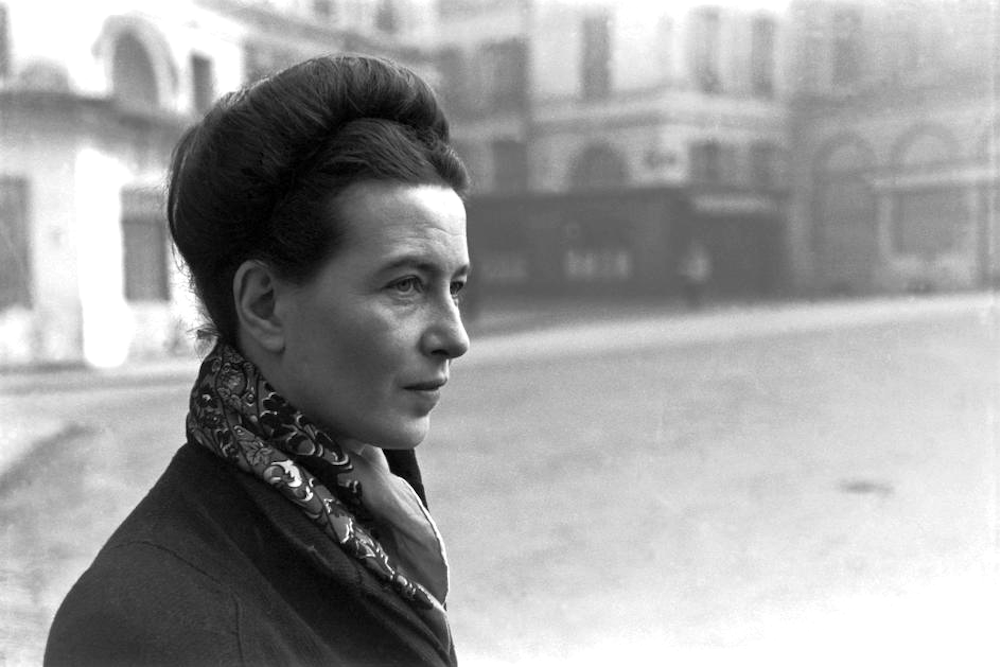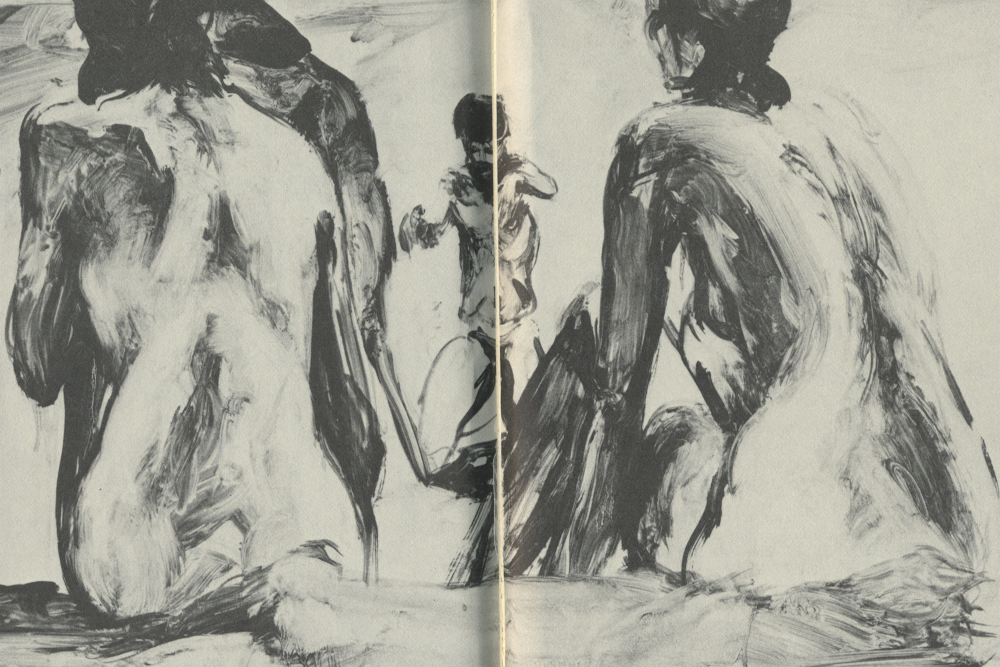Every week, the editors of The Paris Review lift the paywall on a selection of interviews, stories, poems, and more from the magazine’s archive. You can have these unlocked pieces delivered straight to your inbox every Sunday by signing up for the Redux newsletter.
This week at The Paris Review, we’re celebrating Valentine’s Day and dwelling on both the highs and lows of love. Read on for Simone de Beauvoir’s Art of Fiction interview, Akhil Sharma’s short story “The Well,” Frank O’Hara’s poem “Love,” and Eric Fischl’s portfolio “Couples.”
If you enjoy these free interviews, stories, and poems, why not subscribe to The Paris Review? Or take advantage of our current subscription offer, featuring our stylish new notebook—the perfect place to draft love poems, write your novel, or log your reading list. (And you can always just buy the notebook, too!)
Simone de Beauvoir, The Art of Fiction No. 35
Issue no. 34 (Spring–Summer 1965)
INTERVIEWER
None of your female characters are immune from love. You like the romantic element.
DE BEAUVOIR
Love is a great privilege. Real love, which is very rare, enriches the lives of the men and women who experience it.
INTERVIEWER
In your novels, it seems to be the women—I’m thinking of Françoise in She Came to Stay and Anne in The Mandarins—who experience it most.
DE BEAUVOIR
The reason is that, despite everything, women give more of themselves in love because most of them don’t have much else to absorb them. Perhaps they’re also more capable of deep sympathy, which is the basis of love. Perhaps it’s also because I can project myself more easily into women than into men. My female characters are much richer than my male characters.

Photo: Armstrong Nurseries. Courtesy of the Henry G. Gilbert Nursery and Seed Trade Catalog Collection. No restrictions, via Wikimedia Commons.
The Well
By Akhil Sharma
Issue no. 218 (Fall 2016)
As I told her I loved her, I felt, as I often did with Betsy, that what I was saying was a lie, a melodrama, a way to capture her, that things would not work out, that I was being foolish, that I was acting as if I didn’t understand the reality of the situation, except that I did and was willing to break things and make things very bad just so I could get her.
Tears slid down her cheeks.
“Why are you this way?” she asked.
Love
By Frank O’Hara
Issue no. 49 (Summer 1970)
A whispering far away
heard by the poet in a bower
of flesh his limbs stiris it sadness or the perfection
of eyes that clutches him?And a parade of lamenting
draws near a wave of angels
he is drowning in the word
Couples
By Eric Fischl
Issue no. 86 (Winter 1982)
If you enjoyed the above, don’t forget to subscribe! In addition to four print issues per year, you’ll also receive complete digital access to our sixty-seven years’ worth of archives. Or take advantage of our current subscription offer, featuring our stylish new notebook—the perfect place to draft love poems, write your novel, or log your reading list. (And you can always just buy the notebook, too!)
from The Paris Review https://ift.tt/37kQjFI



Comments
Post a Comment